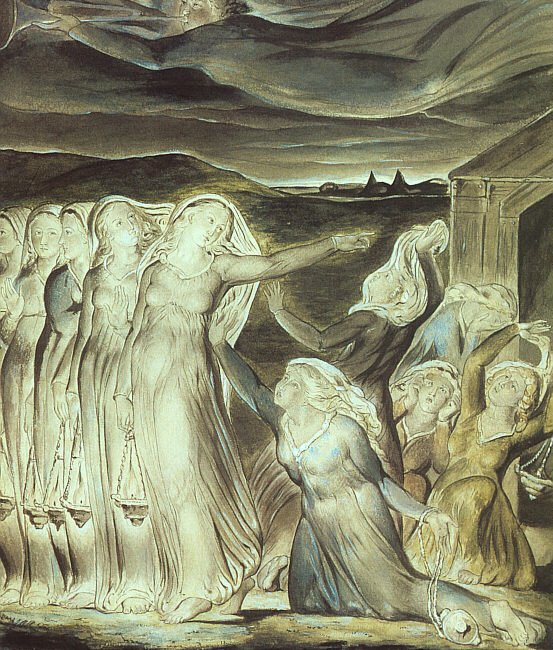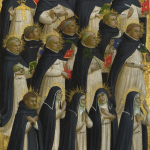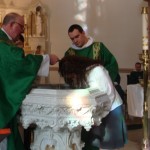I’m always disappointed when a Mass reading has a perplexing or counterintuitive section, and the priest chooses to focus his sermon on the more obvious moral. Luckily, I’ve got you commenters to turn to for exegesis, so maybe you’d like to take a crack at Matthew 25:1-13.
For the Gospel selection at Sunday’s Mass, the priest read Jesus’s parable of the wise and foolish virgins. In the story, ten virgins go out waiting for the bridegroom but only five were wise enough to bring enough oil to last through the night. All the women fell asleep, and when the bridegroom finally approached, only the five who had prepared has enough oil left to light their lamps. I’ll let the text take it from there:
The foolish ones said to the wise, ‘Give us some of your oil, for our lamps are going out.’
But the wise ones replied, ‘No, for there may not be enough for us and you. Go instead to the merchants and buy some for yourselves.’
While they went off to buy it, the bridegroom came and those who were ready went into the wedding feast with him. Then the door was locked.
Afterwards the other virgins came and said, ‘Lord, Lord, open the door for us!’
But he said in reply, ‘Amen, I say to you, I do not know you.’
Jesus introduces this as a metaphor for the Kingdom of Heaven, but, I’ve gotta say, the response of the wise virgins seems a trifle unchristian to me. This parable feels like the polar opposite of the Parable of the Onion from The Brothers Karamazov (I am aware that Dostoevsky isn’t technically scripture, though Tristyn of Eschatological Psychosis may disagree).
I’m not put off just because this scripture reads anti-universalist (though I’ve been persuaded by Richard Beck and others that universalism is at least logically compatible with Christianity and possibly logically necessitated by it). It’s the coldness of the five women turning their backs on the others, jealously guarding their oil and light and then being welcomed by the Christ-figure while the others are cast out.
Anyone have an explanation or exegesis? For bonus points, can anyone tell me if this parable is ever connected with the story of the miracle of Hannukah, where a tiny quantity of oil burned for eight days and nights? It’s strange to contrast that story of Old Testament G-d’s mercy and abundance with New Testament Jesus’s rigidity. (Especially when I usually think of those attributes going the other way round).












